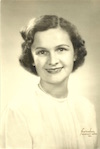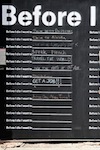 Where was the mystery I’d felt as a child, the anticipation and excitement? The flicker of hope in the candlelight of our Christmas Eve vigil? In the midst of stockpiling my childhood traditions of Christmas joy and imposing them on the life of my new immediate family, I seemed to have signed up for more than my spirit could handle.
Where was the mystery I’d felt as a child, the anticipation and excitement? The flicker of hope in the candlelight of our Christmas Eve vigil? In the midst of stockpiling my childhood traditions of Christmas joy and imposing them on the life of my new immediate family, I seemed to have signed up for more than my spirit could handle.
And then Peter began collecting little things.





















